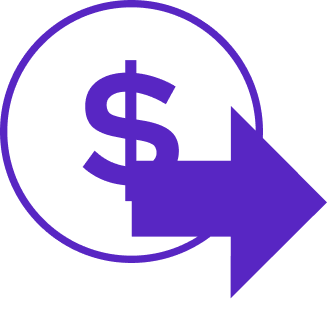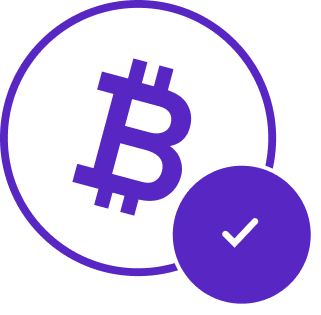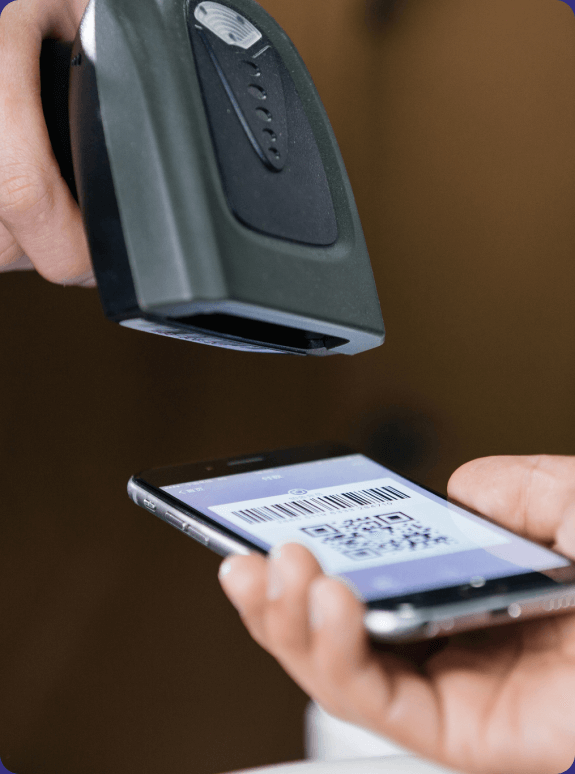Bitcoin Price (BTC)
BTC to USD
$68,194.61
Resources
About Bitcoin
Bitcoin is the world’s first cryptocurrency and the first blockchain-based digital currency. Bitcoin is a decentralized network comprised of computers all around the world working in harmony, storing and transferring value for users in a peer-to-peer fashion.
Part of Bitcoin’s technological breakthrough is due to the blockchain. The blockchain is a kind of digital ledger, or information network, that allows for people to conduct financial transactions over the internet. A decentralized blockchain, like bitcoin, replaces the need for a company, person, or third party to verify and confirm transactions. The innovation of the Bitcoin network is that people from around the world can conduct trusted financial transactions with little more than a bitcoin wallet.
Bitcoin is decentralized because there is no single point of failure. There is no bitcoin company, or bitcoin leader, or bitcoin marketing budget, or bitcoin data center. Instead, Bitcoin is run by people opting-in to participate in the network. Everything from the software development to management of network nodes is managed by people choosing to be involved. It is a network of rules, with no single ruler.
In 2008, a person or entity by the pseudonym Satoshi Nakamoto released the original Bitcoin Whitepaper. This document presented the blueprint for the protocol’s blockchain technology. After circulating the whitepaper on a cypherpunk email list to little fanfare, Nakamoto launched the Bitcoin network in early 2009.
Bitcoin was born out of the 2008 financial crisis. Many saw Satoshi’s invention as a way to create a better, more fair type of money that all can use and benefit from. Money that can’t be manipulated by any government or central bank. A people’s money, run by some lines of code.
Early adopters began mining the currency on ordinary desktop computers, and over time interest in the network grew. Several years later Nakamoto disappeared. Satoshi’s real identity has never been confirmed, despite much speculation.
Fast forward a little more than a decade and Bitcoin has inspired a new financial era. There are now thousands of cryptocurrencies that are building on Bitcoin’s success. Today, thousands of businesses around the world accept bitcoin as a form of payment for their products or services.
The Bitcoin Network
The Bitcoin network is run by a series of nodes containing copies of the digital ledger, a ledger which can be downloaded by anyone participating on the Bitcoin protocol. Nodes are spread throughout the world and help keep Bitcoin’s infrastructure safe and secure.
Bitcoin mining is a cryptographic process used to verify transactions and create new blocks. Known as proof-of-work, miners use intense computational power to solve mathematical puzzles. The miner that computes the calculation first earns a block reward, which is an issuance of new bitcoin. New blocks of confirmed transactions are mined every ten minutes and then broadcast to network nodes.
Another thing that makes Bitcoin unique is that the schedule at which new bitcoin will be produced (inflation rate) is already coded into the network. We know, for example, that the last bitcoin will be mined sometime in the year 2140 - and that only 21 million will ever be produced. We also know that every four years the block reward gets cut in half.
Bitcoin has appreciated in price quite a bit in its short history, but there’s no need to feel like you’ve missed out. Bitcoin is still very young, and you don’t need to buy a whole bitcoin to get started. Bitcoin is divisible to 8 decimal places, that’s right, you can technically buy .00000001 of a bitcoin (or BTC) to get started.
The Bitcoin Community
Since bitcoin is the oldest and most mature cryptocurrency, it has a very well developed community surrounding its adoption and use.
Bitcoin is now so popular that there are meetups, conferences, and social media groups dedicated to talking about all things bitcoin. In some parts of the world, bitcoin cities are popping up, which are places where municipalities are passing laws favorable to bitcoin development and use for things like paying taxes or, in some cases, not charging taxes on bitcoin gains.
Bitcoin means different things for different people all around the world. Some people look to bitcoin as an escape from hyperinflation or authoritarian governments. Some people use bitcoin as their primary monetary network, meaning they might not be able to open a bank account. Regardless of how you may choose to use Bitcoin, the network is able to provide a use case and value to billions of people around the world.
There are also specialized communities within bitcoin that work on issues related to bitcoin’s adoption and use. Layer 2 proponents, for example, are working on making it faster and cheaper to use bitcoin for ordinary transactions by making the use of bitcoin faster and cheaper via tools like the Lightning Network.
Did you know? Bitcoin with a capital “B” refers to the Bitcoin network. Bitcoin with a lowercase “b” refers to bitcoin the currency.






 Labs is acquiring Coinme to power the Open Money Stack.
Labs is acquiring Coinme to power the Open Money Stack.